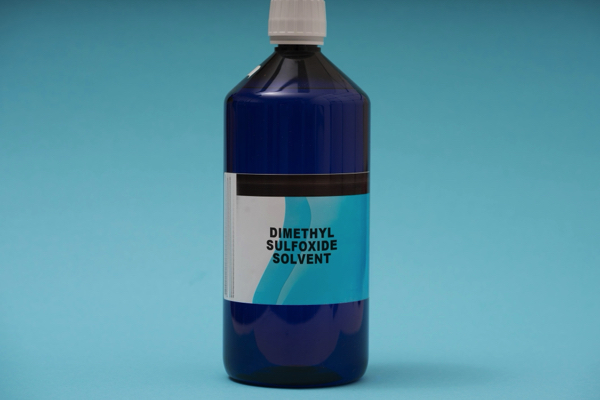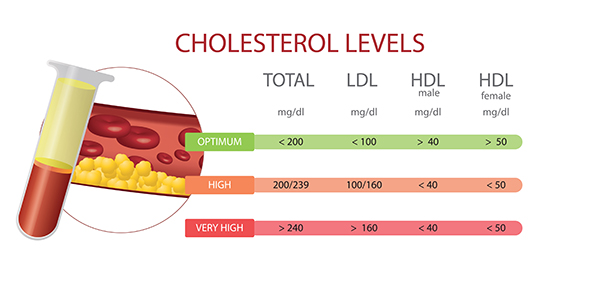Prepper safety 101: Tetanus, the silent killer lurking in your garage
07/25/2025 / By Zoey Sky

- Tetanus is a severe bacterial infection caused by Clostridium tetani, which is commonly found in soil, dust and rusty objects. The bacteria can enter the body through cuts or puncture wounds and release a toxin that attacks the nervous system.
- Symptoms start mildly with muscle stiffness, difficulty swallowing or cramps, but can escalate to severe muscle spasms, breathing difficulties and paralysis. Without prompt medical treatment, tetanus can be fatal.
- Garages are ideal environments for tetanus bacteria due to the presence of dust, dirt and forgotten tools.
- Wear protective gear and regularly inspect and maintain tools to prevent injuries and infections.
- If you sustain a deep, dirty or rusty wound, seek medical help immediately. Your garage should be a safe space for work and storage. By taking simple precautions and staying vigilant, you can protect yourself and your family from tetanus and other hidden dangers.
Imagine this scenario: You’re in your garage, engrossed in a DIY project or perhaps just tackling that long-overdue cleaning.
Suddenly, you feel a sharp prick, like a rusty nail or an old screwdriver has found its way into your skin. You dismiss it as a minor injury, clean it up and move on.
But what you might not realize is that you’ve just invited a formidable adversary into your body. This hidden threat is tetanus, often referred to as “lockjaw,” and it can turn deadly if not addressed promptly. (h/t to AskAPrepper.com)
What is tetanus?
Tetanus is a severe bacterial infection caused by Clostridium tetani, a bacterium commonly found in soil, dust and rusty objects. When this pathogen enters the body through a wound, it releases a potent toxin that attacks the nervous system.
The initial symptoms may seem innocuous, like muscle stiffness, difficulty swallowing or cramps. However, within days, they can escalate to severe muscle spasms, breathing difficulties and even full-body paralysis. Without immediate medical intervention, tetanus can be fatal.
Unlike many infections, tetanus is not contagious. It requires a direct entry point through a cut or puncture wound, making it a silent and insidious threat. You might not even realize you’re infected until it’s too late.
How you can get tetanus in your garage
Your garage is a prime breeding ground for tetanus bacteria. The combination of dust, dirt and forgotten tools creates an environment ripe for infection.
Here are some common ways tetanus can find its way into your body:
Rusty nails and sharp metal edges
Stepping on a rusty nail or cutting yourself on an old metal shelf can introduce tetanus bacteria into your bloodstream.
While rust itself doesn’t cause tetanus, it often indicates exposure to dirt and moisture, which are ideal conditions for the bacteria to thrive.
Dirty tools and old equipment
Tools stored without proper cleaning can harbor dirt and bacteria. Even a small nick from a dirty tool can lead to a serious infection.
Gardening and yard tools
If you keep your gardening tools in the garage, they likely carry soil residue, a primary source of C. tetani. A scratch from a dirty rake or hoe could be enough to cause an infection.
Preventing tetanus: Simple steps for safety
While tetanus is a dangerous infection, the good news is that it is largely preventable with some basic precautions:
Wear protective gear
When working in the garage, especially with sharp or dirty tools, wear thick gloves and long sleeves. This simple barrier can significantly reduce the risk of cuts and punctures.
Regularly inspect and maintain tools
Clean your tools after each use and check for signs of rust or damage.
Store them in dry, sealed areas to prevent contamination. A few minutes of maintenance can save your life.
What to do if you get injured
Accidents happen, even to the most cautious among preppers. If you sustain a cut or puncture in your garage, take these immediate steps:
- Clean the wound – Once you get injured, carefully rinse the wound. Do it thoroughly with soap and running water. Remove any dirt or debris.
- Apply antiseptic – Use an antiseptic to disinfect the area and cover the wound with a clean bandage.
- Seek medical attention – If the wound is deep, dirty or caused by a rusty object, seek medical help immediately.
Be vigilant for early symptoms of tetanus, such as jaw stiffness, muscle cramps, trouble swallowing or unexplained headaches. These could be warning signs that require emergency treatment.
Other hidden dangers in your garage
While tetanus is a significant concern, it’s not the only danger lurking in your garage.
Here are a few more threats to be aware of:
Clutter and falling objects
A cluttered garage can be a hazard during emergencies. Keep walkways clear and secure heavy items to prevent them from falling. (Related: Emergency medicine: Essential first aid skills for survival.)
Insecure garage openers and locks
Upgrade to a modern, secure garage door opener and reinforce locks to prevent unauthorized access.
Chemicals and hazardous materials
Many garages contain chemicals like paint, pesticides and solvents. These can cause severe burns, lung damage, or poisoning if mishandled.
Always store them in labeled, sealed containers and wear protective gear when handling them.
Combustible liquids and flammable fuels
Gasoline, propane and other fuels are highly flammable. Store them in approved containers, away from ignition sources and never smoke near them.
Faulty wiring and electrical hazards
Old or damaged wiring can lead to fires or electrocution. Regularly inspect your garage’s electrical system and replace any questionable wiring.
Mold and hidden fungi
Poor ventilation and leaks can lead to mold growth, which can cause respiratory issues and other health problems.
Use a dehumidifier if needed and repair any water damage promptly.
Dangerous tools and power equipment
Always use safety guards and wear protective gear when operating tools. Keep them stored securely to prevent accidents.
Your garage should be a safe space for work and storage, not a minefield of hidden dangers. By taking simple precautions and staying vigilant, you can protect yourself and your family from tetanus and other threats.
Visit Health Ranger Store and Brighteon Store to browse lab-verified products for your prepping needs. EmergencyMedicine.news has more useful first aid tips.
Watch the video below for some useful prepping tips for beginners.
This video is from the Survival Prepper For Beginners channel on Brighteon.com.
More related stories:
The science of extraction: How alcohol-free green tea tinctures are made.
Prepper first aid: DIY antiseptics for wound care.
The minimalist prepper: How owning less can prepare you for more when disaster strikes.
Sources include:
Submit a correction >>
Tagged Under:
Clostridium tetani, emergency medicine, first aid, homesteading, infections, off grid, preparedness, prepper, prepping, prevention, survival, survival medicine, survival skills, tetanus, tips, wound care
This article may contain statements that reflect the opinion of the author





















